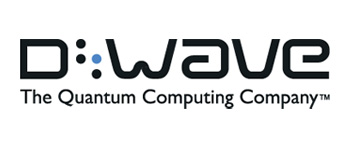NEC Quantum Solutions
NEC and D-Wave expand quantum presence in New Zealand and Australia
NEC Quantum Solutions
NEC and D-Wave expand quantum presence in New Zealand and Australia
Did you know?
Built to support real-world size applications with up to 1 million variables and 100,000 constraints.
Estimated value of quantum tech industry in Australia by 2023 with 8,700 jobs created.
More than 250 early applications have been built using our partner, D-Wave technology.
Source:Source: National Quantum Strategy – Australian Government 2023.
Overview
Quantum Computing
Quantum computing is an approach to calculation that uses principles of physics, computer science and mathematics to solve extremely complex problems rapidly.
NEC and partner, D-Wave use a process called annealing quantum computing to search for solutions to a problem. Annealing quantum computing is a way of solving problems that are aligned to optimisation problem solving and problematic sampling.
Our philosophy is to build products and services that accelerate time-to-value and help enterprises solve complex business problems that deliver business value today. D-Wave is a market leader with over 20 years’ experience in pioneering superconducting quantum annealing systems.
Today, customers are building quantum applications for problems as diverse as logistics, portfolio optimisation, drug discovery, materials sciences, scheduling, fault detection, traffic congestion, supply chain management, and much more.
Capabilities
Optimise operations
QC can solve complex business challenges and deliver significant cost savings.Proven success
D-Wave’s customers have built 250+ quantum-hybrid applications across multiple industry sectors.Local support
NEC understand the requirements around data sovereignty and security.Leverage expertise
You don’t need to be an expert. D-Wave has 20+ years in developing and delivering quantum solutions.Comprehensive
We offer a full-stack of systems, software, developer tools, and services to our customers.In-production
We’re hyper-focused on following the fastest path to practical, real-world applications.Register your interest
How it Works
Classical computing is built on bits. A bit is a unit of information that can store either a zero or a one.
By contrast, quantum computing is built on quantum bits, or qubits, which can store zeros and ones. Qubits can represent any combination of both zero and one simultaneously – this is called a superposition.
This superposition of states – along with the other quantum mechanical phenomena of entanglement and tunneling – enables quantum computers to manipulate enormous combinations of states at once.
Whilst quantum computers will not replace your common PC, by using the principles of quantum physics, they will be able to solve very complex statistical problems that today’s computers can’t.
Technological advancements and the growing need for faster and more precise computing are positively impacting the demand for quantum computing.
Annealing Quantum Computing
Classical computing is built on bits. A bit is a unit of information that can store either a zero or a one.
By contrast, quantum computing is built on quantum bits, or qubits, which can store zeros and ones. Qubits can represent any combination of both zero and one simultaneously – this is called a superposition.
This superposition of states – along with the other quantum mechanical phenomena of entanglement and tunneling – enables quantum computers to manipulate enormous combinations of states at once.
Whilst quantum computers will not replace your common PC, by using the principles of quantum physics, they will be able to solve very complex statistical problems that today’s computers can’t.
Technological advancements and the growing need for faster and more precise computing are positively impacting the demand for quantum computing.
Classical vs Quantum
We use a process called annealing quantum computing to search for solutions to a problem.
Annealing quantum computing outperforms other approaches such as gate model when it comes to complex optimisation problems.
This is because annealing avoids the significant pre-processing overhead associated with QAOA/gate-based approaches, is much more tolerant of errors and noise, and can scale to enterprise problem size.
In nature, physical systems tend to evolve toward their lowest energy state: objects slide down hills, hot things cool down, and so on. This behaviour also applies to quantum systems.
To imagine this, think of a traveller looking for the best solution by finding the lowest valley in the energy landscape that represents the problem.
The Only End-to-End Platform
We use a process called annealing quantum computing to search for solutions to a problem.
Annealing quantum computing outperforms other approaches such as gate model when it comes to complex optimisation problems.
This is because annealing avoids the significant pre-processing overhead associated with QAOA/gate-based approaches, is much more tolerant of errors and noise, and can scale to enterprise problem size.
In nature, physical systems tend to evolve toward their lowest energy state: objects slide down hills, hot things cool down, and so on. This behaviour also applies to quantum systems.
To imagine this, think of a traveller looking for the best solution by finding the lowest valley in the energy landscape that represents the problem.
Solutions
Cloud Platform
LeapTM delivers real-time access to leading edge quantum resources.
- Practical approach
- Highly scalable
- Rapid response
- Easily accessible
- Simple environment
Quantum Consultancy
Leverage our expertise to deliver optimised quantum solutions.
- Proven methodologies
- Problem discovery
- Proof of concept (PoC)
- Optimise your operations
- High ROI
- Flexible and scalable
Customers

Volkswagen
See how D-Wave helped Volkswagen to become a leader in exploring how to leverage quantum computers for complex tasks across a broad spectrum of manufacturing, logistics, and mobility use cases.

Sigma-i
See how D-Wave helped Japan-based startup Sigma-i to develop quantum computing-based solutions post-pandemic to support businesses, schools, and hospitals that struggled with the difficulties of maintaining critical operations, whilst ensuring public safety. This included a powerful personnel management tool.
Partner





